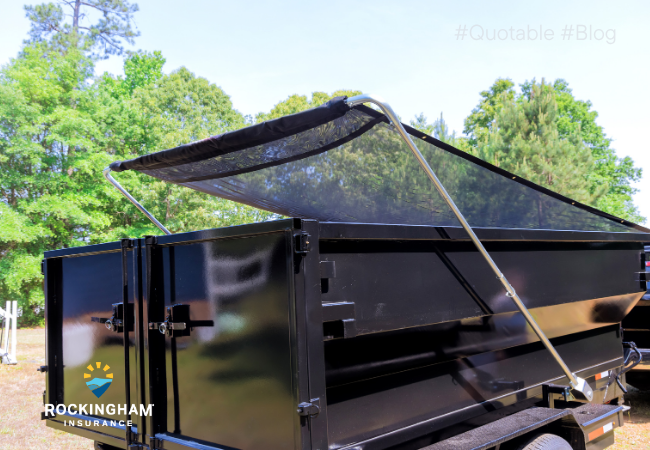A Guide to Camper and Utility Trailer Insurance

Whether it’s for weekend DIY projects or family trips, trailers make it easier to bring the necessities wherever you go.
But how do these add-ons factor into your insurance coverage, and what actually counts as a “trailer?” Let’s take a closer look at what a standard policy will cover, and when you should consider additional coverage to protect your hauls on the go.
Understanding Trailer Coverage
At Rockingham Insurance, when we talk about trailers, we’re not referring to RVs or motorized homes. “Trailers,” in this case, means non-motorized, tow-behind units attached by a hitch. This includes both camper trailers and utility trailers.
The good news is your auto policy already provides liability coverage while towing. This means, if you cause property damage or bodily injury while towing your trailer, your policy helps cover those costs. Medical expenses and lost income related to a towing accident are also included. However, damage to the trailer itself, whether from an accident, theft or weather, requires additional coverage such as comprehensive or collision insurance.
With about 5 million utility trailers on the road and countless camper trailers headed to campsites each year, accidents can happen. Fortunately, coverage costs only about one percent of your trailer’s replacement value, offering a straightforward way to protect both your trip and your investment.
Coverage Breakdown
Rockingham’s trailer insurance is designed to keep you protected on the road and while parked.
Liability Coverage extends from your existing Rockingham auto policy when towing, and protects you if you:
- Cause property damage in a collision
- Experience a guest injury near your camper trailer
- Face medical expenses and/or lost income from a towing accident
In other scenarios, however, additional comprehensive or collision coverage may be needed.
Comprehensive Insurance covers non-collision damage such as theft, storms, vandalism, or wildlife, including:
- Suffer damage when a tree falls on your camper trailer during a storm
- Experience theft or vandalism of your trailer
- Sustain damage caused by animals
Collision Insurance helps repair or replace your trailer if it’s damaged in an accident, such as:
- Jackknife a utility trailer or damage it in a crash
- Back into another vehicle while towing
For added peace of mind, you can also include Roadside Assistance or Roadside Assistance Plus to help with unexpected breakdowns, or umbrella coverage to provide additional liability protection.
Before Your Next Trip
Trailer coverage costs pennies compared to the protection it provides. With Rockingham Insurance by your side, spend less time worrying about ‘what ifs’ and more time enjoying your journey. Reach out to your local Rockingham agent today to explore your coverage options and hitch up with confidence.
Related posts
Read more articles related to the one you just finished.
.jpg)
Car insurance that keeps up with your everyday life. Stay focused on the road ahead and not on the stress of figuring out what’s covered.
Get a Homeowners insurance quote.
Start the process of finding the right coverage for you. Get a quote and compare us to other companies. Then call an agent and get the right coverage for the right price.
.avif)
.png)





